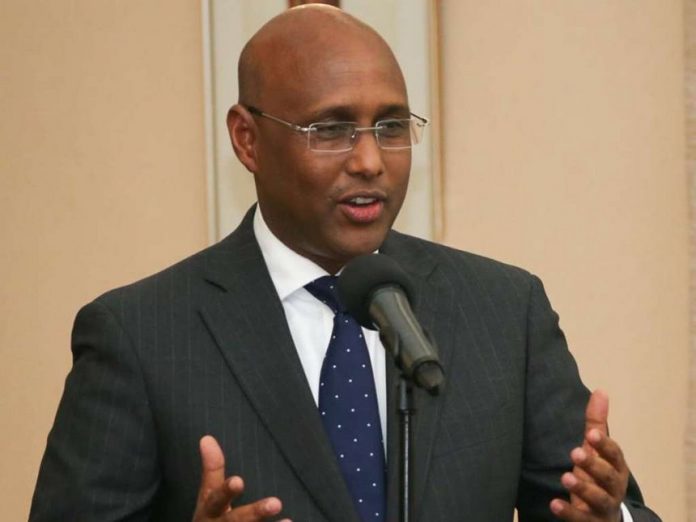Kenya’s attractiveness to investors improved 12 places, the World Bank said in its latest ranking, which also shows that slow registration of property and issuance of construction permits remain the biggest drags on the economy.
East Africa’s largest economy finished 80th in the 2017 ease of doing business index that surveyed 190 economies compared to last year’s position 92.
The new ranking, the highest since 2008 when the country finished in 84th position, means Kenya is the third most competitive economy in Africa after Mauritius (25th) and Rwanda (41st).
“This is the country’s best performance in 15 years and reflects a continuous improvement process that is a good indicator for international investors,” Trade and Industry secretary Adan Mohamed said in Nairobi. “We are very excited and will continue improving with full involvement of private sector.”
Kenya is, however, ranked worse than the average score in seven out of 10 parameters assessed by the World Bank, meaning the country faces a steep climb to achieve the targeted 50th position in two years.
The worst performance areas include registration of property where Kenya finished in 125th position, dealing in construction permits (124), starting a business (117) and trading across the borders (106).
The report, which is based on data collected in the year ended June 1, shows that investors take 61 days to register property in Kenya (going through nine procedures) compared to sub-Saharan average of 59 days in 6.2 procedures.
Getting approval for construction permits takes 159 days in 16 procedures compared to sub-Sahara’s average of 147.5 days in 14.8 procedures. Kenya is, however, five per cent cheaper in warehouse value compared to Africa’s average of 9.9 per cent.
Despite the new Companies Act becoming law, it takes an average of 25 days to start a business in Kenya compared to Africa’s average of 24 days.
Procedures for starting are nonetheless lower at six against 7.6 average for Africa.
On getting clearance across the national borders, Kenya ranks low globally despite taking an average of 21 hours compared to 100.1 hours in Africa. This is largely because it takes an average of 12.7 hours to finish a similar process in advanced economies.
Resolving insolvency (95), paying taxes (92), and enforcing contracts (90) are other areas where Kenya is performing poorly. Kenya is ranked best in accessing credit at position 29, followed by protecting the rights of minority investors (62) and getting electricity connection (71).
“You may not see the impact right away, but some may start coming as competition increases. Our work is to make sure there is that continuation and improvement so that we have more and more businesses setting up,” CEO of Kenya Private Sector Alliance Carole Kariuki said.
The report cites six key reforms needed in starting a business, accessing electricity, dealing with construction permits, paying taxes, accessing credit and trading across the border for the country to improve its standing on the list.
“Kenya made starting a business easier by merging procedures required to start-up and formally operate a business,” the group said in the report.
Removal of 0.1 per cent of environmental audit and 0.5 per cent building levy by the National Environmental Management and National Construction Authority, respectively, made it less expensive for investors, the report says.
Access to credit information and paying and filing of corporate income tax on iTax also improved in the year period ended June 2017, the survey which focused on Nairobi says.
There was also reduction in time for import documentation because of single window system which allows for electronic submission of customs entries, while reliability of electricity also improved on upgrade of distribution lines and transformers as well as setting up a specialized team to restore power when outages occur.









